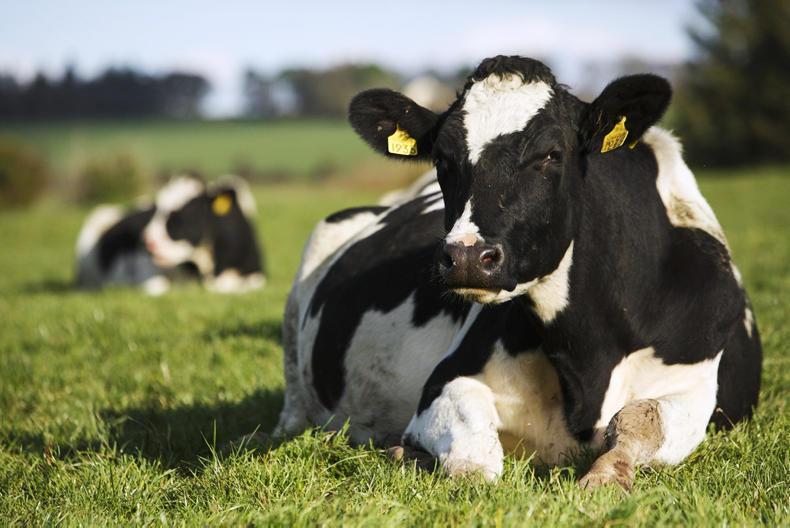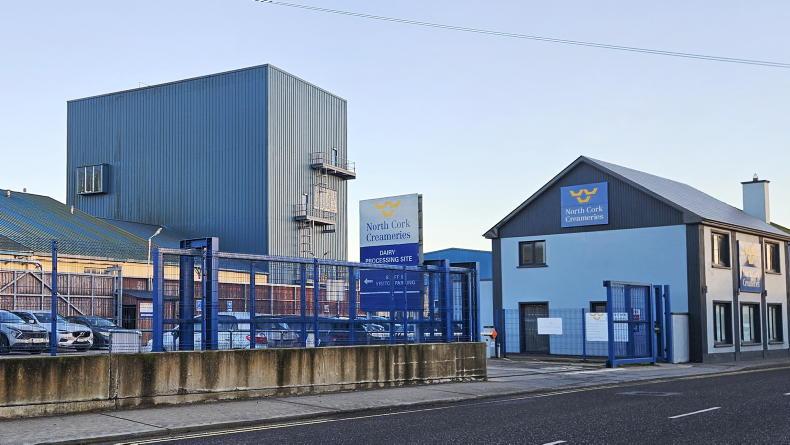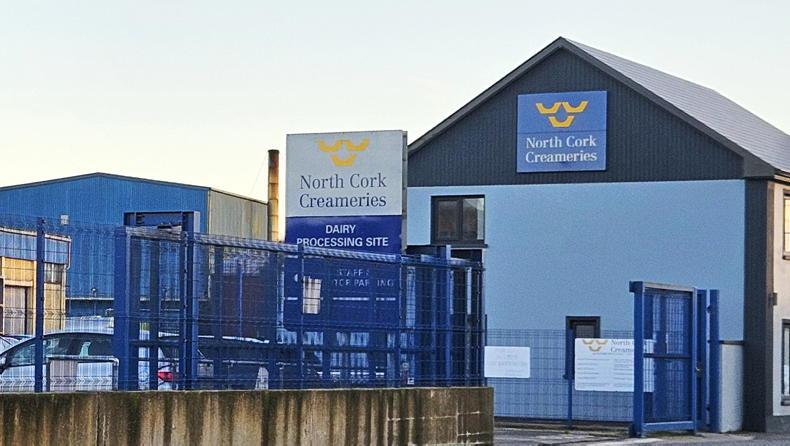A new project by the west Cork Carbery Group seeks to cut methane emissions from cows by refining the grass they eat.
Carbery Group is working with IT Tralee, UCD and Dutch company GRASSA BV to trial a 'grass refinery'.
The refinery is used to isolate the proteins and nutrients cows use from grass, while separating the remainder of the nutrients for use as by-products.
Grass whey
Speaking at the AgroCycle conference hosted by the Department of Agriculture at Backweston, Co Kildare, last week, Enda Buckley of Carbery explained more.
“Fresh grass is presented to this machine, which uses a giant press to squeeze out all liquid, leaving a very dry haylage-like compound and a green grass liquid called grass whey,” he said.
“The haylage is fed to the cows, and research shows that energy levels are the same as fresh grass.”
Because animals don’t spend as much time breaking down the fodder, “cows produce much less methane and ammonia”.

Carbery Group's plant in Ballineen, Co Cork. \ Donal O'Leary
Grass whey then has a number of uses including phosphate fertiliser and as a protein feed for pigs and poultry.
Carbery will be trialling the project on five farms in west Cork this June to determine its viability.
“To date, the results have been all positive and it’s definitely exciting,” he told the conference delegates.
If successful, the need for imported proteins could be greatly reduced, while emissions could be cut down significantly.
Greener Dairy programme
Carbery’s Greeener Dairy programme, which was set up in 2012 to promote best practice on farms, has now grown to 66 farmers.
Each farm is assessed on its biodiversity, carbon footprint, water footprint, inputs and farm profitability.
Together with Teagasc, Carbery uses this benchmark data to advise farmers on how to tweak systems, optimise resources and encourage best practice on their farm.
To date, the carbon footprint on the 66 farms has been cut by 15%, while overall profitability increased throughout.
“There is a correlation with really good farm practice and profit,” Buckley said.
Higher learning
“We also got our programme recognised in conjunction with UCC in what’s called retrospective higher learning,” he added.
“Participants of our programme got the chance to go to college last year and received a diploma in environmental science from UCC.
"This is a great story, as some of these guys never got the chance to go to second-level, never mind third-level, education.”
Carbery also rolled out a 'Plant a tree' project in which it gave all suppliers 20 ready-to-plant native trees.
Farmers have really bought into the initiative, according to Buckley, and to date they have planted 45,000 trees.
Read more
Payments for climate results rather than carbon tax
Spray warning from Irish Water as pesticide breaches rise
Environment: derogation public consultation
A new project by the west Cork Carbery Group seeks to cut methane emissions from cows by refining the grass they eat.
Carbery Group is working with IT Tralee, UCD and Dutch company GRASSA BV to trial a 'grass refinery'.
The refinery is used to isolate the proteins and nutrients cows use from grass, while separating the remainder of the nutrients for use as by-products.
Grass whey
Speaking at the AgroCycle conference hosted by the Department of Agriculture at Backweston, Co Kildare, last week, Enda Buckley of Carbery explained more.
“Fresh grass is presented to this machine, which uses a giant press to squeeze out all liquid, leaving a very dry haylage-like compound and a green grass liquid called grass whey,” he said.
“The haylage is fed to the cows, and research shows that energy levels are the same as fresh grass.”
Because animals don’t spend as much time breaking down the fodder, “cows produce much less methane and ammonia”.

Carbery Group's plant in Ballineen, Co Cork. \ Donal O'Leary
Grass whey then has a number of uses including phosphate fertiliser and as a protein feed for pigs and poultry.
Carbery will be trialling the project on five farms in west Cork this June to determine its viability.
“To date, the results have been all positive and it’s definitely exciting,” he told the conference delegates.
If successful, the need for imported proteins could be greatly reduced, while emissions could be cut down significantly.
Greener Dairy programme
Carbery’s Greeener Dairy programme, which was set up in 2012 to promote best practice on farms, has now grown to 66 farmers.
Each farm is assessed on its biodiversity, carbon footprint, water footprint, inputs and farm profitability.
Together with Teagasc, Carbery uses this benchmark data to advise farmers on how to tweak systems, optimise resources and encourage best practice on their farm.
To date, the carbon footprint on the 66 farms has been cut by 15%, while overall profitability increased throughout.
“There is a correlation with really good farm practice and profit,” Buckley said.
Higher learning
“We also got our programme recognised in conjunction with UCC in what’s called retrospective higher learning,” he added.
“Participants of our programme got the chance to go to college last year and received a diploma in environmental science from UCC.
"This is a great story, as some of these guys never got the chance to go to second-level, never mind third-level, education.”
Carbery also rolled out a 'Plant a tree' project in which it gave all suppliers 20 ready-to-plant native trees.
Farmers have really bought into the initiative, according to Buckley, and to date they have planted 45,000 trees.
Read more
Payments for climate results rather than carbon tax
Spray warning from Irish Water as pesticide breaches rise
Environment: derogation public consultation












SHARING OPTIONS